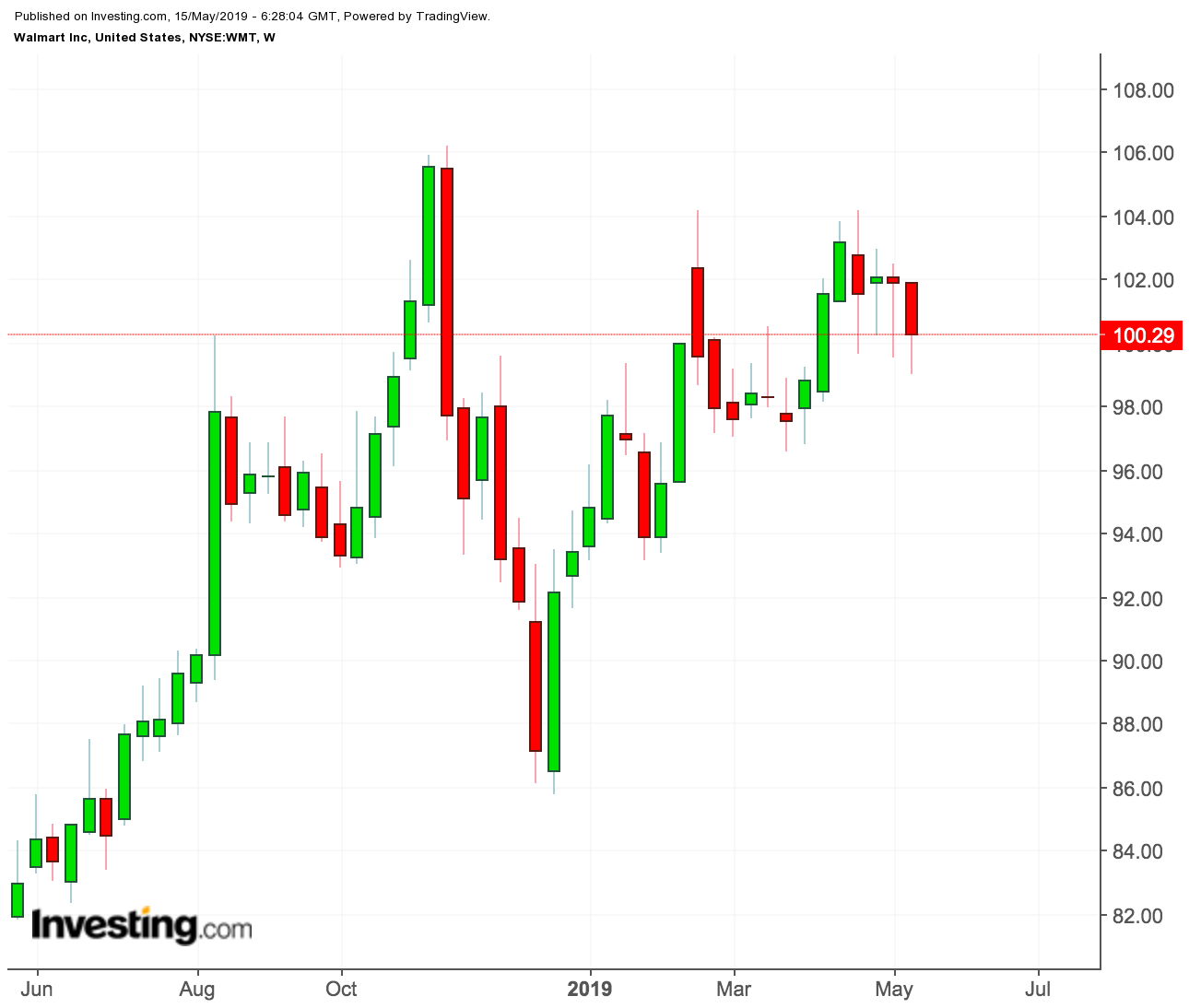* Reports Q1 2019 results Thursday, May 16, before the market opens
* Revenue expectation: $125.15 billion
* EPS expectation: $1.02
When Walmart Inc. (NYSE:WMT) reports first-quarter earnings tomorrow, investors will have their eyes set on two critical metrics: same-store sales and growth in e-commerce. And there's a good chance that the world's largest brick-and-mortar retailer won’t disappoint.
A turnaround in same-store sales, which started in the third-quarter of fiscal 2015, has gained pace in the company’s fiscal 2019. As of its most recent report in February, comparable store sales rose for 17 consecutive quarters in the U.S.
That growth cycle has been fueled by a number of pivotal efforts: the company’s massive investments in its online channels, its focus on cleaner and better-stocked stores and improvement in its grocery offerings. Walmart’s e-commerce business has expanded by around 40% in the past three earnings reports, showing the big-box retailer isn’t ready to cede ground to e-commerce giant, Amazon (NASDAQ:AMZN).
In fact, the competition from Amazon is making Walmart a more efficient player and forcing it to fully utilize its massive brick-and-mortar presence that any e-commerce player is lacking. The recent example of this intensifying competition came when Walmart was quick to match its rival’s one-day delivery service announced last month for all Amazon Prime members.
The company’s strong growth momentum has kept Walmart shares strong during the past year as they surged 19% against the benchmark S&P 500’s 4% expansion during the same period.

China Risk
Going forward, the horizon doesn’t look very promising for the retail sector. The headwinds are gathering pace as the U.S.-China remain embroiled in a trade war which has the potential to hurt consumer sentiment and escalate costs. Both the U.S. and China announced this week they will raise tariffs on imports after crucial trade negotiations stalled.
In a letter to U.S. Trade Representative Robert Lighthizer last September, Walmart warned that a 25% tariff on Chinese imports will hike its costs. “Either consumers will pay more, suppliers will receive less, retail margins will be lower, or consumers will buy fewer products or forgo purchases altogether,” the letter said.
No doubt, raising prices for consumers will be a tough choice for the big-box retailer, given the political nature of this dispute, but in our view Walmart is better positioned to outperform its rivals. This is mainly because its massive size gives it more power to squeeze suppliers for better prices if the U.S./China dispute prolongs and turns into a full-blown trade war.
Bottom Line
Despite the short-term risks, we like Walmart stock for long-term investors and see the retailer as a good candidate for any defensive portfolio, at a time when threats to global growth are mounting. Some investors might consider Walmart stock, which closed yesterday up 0.4% at $100.26, as expensive given its forward price-to-earnings multiple of around 20.
But that concern ignores the fact the retailer isn’t the same company it was five years ago. With its current e-commerce momentum and its strong, core brick-and-mortar operations, we believe if there's any post earnings sell-off, it will provide a good entry point for the buy-and-hold investors.
